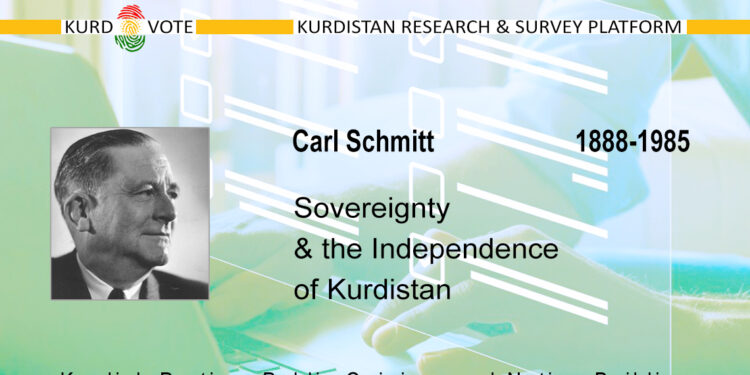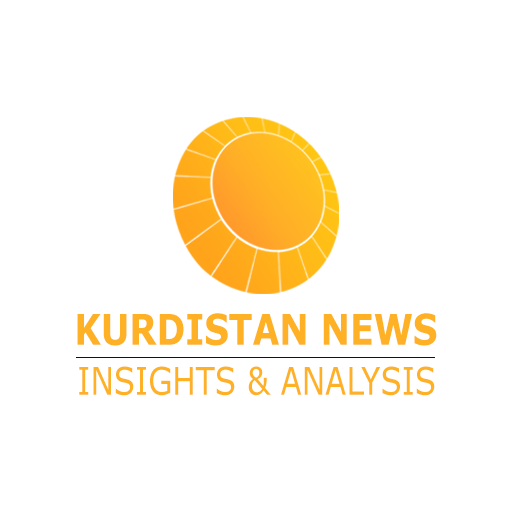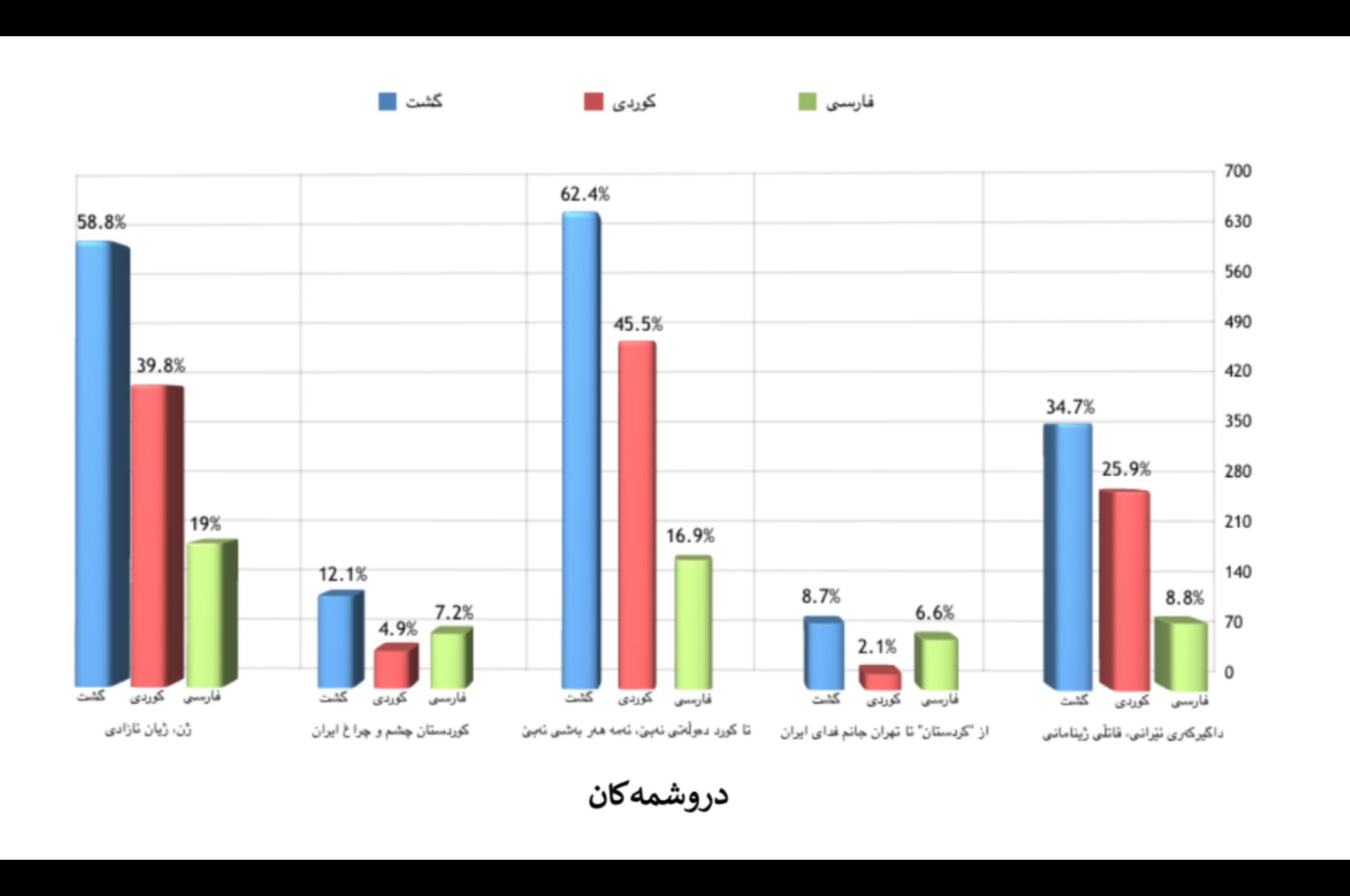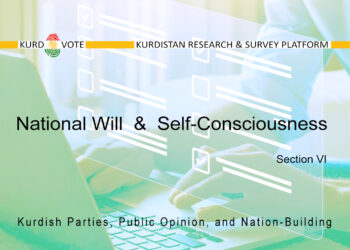Carl Schmitt, Sovereignty, and the Independence of Kurdistan
Introduction
Carl Schmitt (1888–1985) is among the most influential yet controversial political theorists of the twentieth century. He is best known for two central ideas: sovereignty as the power to decide on the state of exception and the friend/enemy distinction as the essence of the political. A sharp critic of liberalism and parliamentarism, Schmitt argued that political legitimacy derives not from deliberation and consensus but from the decisive authority of the sovereign (Schmitt, 1922/2005; Schmitt, 1932/2007). Although his association with the Nazi regime tarnished his reputation, his works remain central to debates on power, legitimacy, and sovereignty (McCormick, 1997). For the project “Kurdish Parties, Public Opinion, and Nation-Building”, Schmitt’s concepts provide critical tools to analyze the question of independence and the structural limitations of autonomy and federalism.
Sovereignty and the State of Exception
In Political Theology (1922/2005), Schmitt famously declared: “Sovereign is he who decides on the exception.” Sovereignty, in his formulation, lies in the power to make binding decisions in moments of crisis. Applied to Kurdistan, this idea underscores that even if institutions in education or culture function under autonomy, as long as the decisive power in exceptional situations—war, security, independence—remains with the occupying states, Kurdistan lacks genuine sovereignty.
Politics as the Friend/Enemy Distinction
In The Concept of the Political (1932/2007), Schmitt defines politics in terms of the friend/enemy distinction. Politics, in this view, is distinct from other social domains because it entails existential conflicts. In the case of Kurdistan, political identity has historically been shaped through confrontation with occupying states. Yet Kurdish parties have repeatedly redefined “friend” and “enemy,” sometimes strengthening and sometimes fragmenting national solidarity (Odysseos & Petito, 2007).
Critique of Liberalism and Parliamentarism
Schmitt argued that liberalism and parliamentarism, with their emphasis on deliberation and consensus, are structurally incapable of decisive action in existential crises (Schmitt, 1923/1988). This critique is particularly relevant when contrasted with Jürgen Habermas’s theory of the public sphere and communicative legitimacy (Habermas, 1989). Whereas Habermas locates legitimacy in rational-critical discourse, Schmitt emphasizes the necessity of decisive political acts. In the Kurdish context, this tension becomes apparent in moments such as independence referenda, where deliberation alone cannot substitute for sovereign decision-making.
The Paradox of Autonomy and Federalism
Schmitt’s theory also reveals the paradox inherent in autonomy and federalism. Even where institutions in Kurdistan operate with relative independence, as long as they remain framed within the authority of the occupying states, sovereignty remains external. The historical experience of East Kurdistan illustrates this point: periods of relative cultural freedom did not produce genuine nation-building but instead functioned as mechanisms of state control and territorial preservation (Natali, 2010; Romano, 2006). In Schmittian terms, autonomy and federalism represent forms of dependent modernization that defer, rather than secure, independence.
Theoretical Significance for the Project
For the project “Kurdish Parties, Public Opinion, and Nation-Building”, Schmitt’s framework carries dual importance. First, his concept of sovereignty demonstrates why independence is structurally necessary: without control over the state of exception, Kurdistan cannot achieve true nation-building. Second, his friend/enemy distinction provides an analytical tool for examining how parties and public opinion in Kurdistan construct political boundaries and how these constructions influence unity or division.
Conclusion
Carl Schmitt’s political theory provides a powerful framework for analyzing the contradictions of autonomy, federalism, and the necessity of independence in Kurdistan. By defining sovereignty as the capacity to decide on the exception and politics as the friend/enemy distinction, Schmitt highlights why autonomy and federalism—even in their most extensive form—remain in fundamental contradiction with national independence. His framework therefore strengthens the theoretical foundations of the project by clarifying that independence is not merely a political aspiration but a structural requirement for modern nation-building in Kurdistan.
References
- Habermas, J. (1989). The Structural Transformation of the Public Sphere. Cambridge, MA: MIT Press.
- McCormick, J. P. (1997). Carl Schmitt’s Critique of Liberalism: Against Politics as Technology. Cambridge: Cambridge University Press.
- Natali, D. (2010). The Kurdish Quasi-State: Development and Dependency in Post-Gulf War Iraq. Syracuse: Syracuse University Press.
- Odysseos, L., & Petito, F. (Eds.). (2007). The International Political Thought of Carl Schmitt. London: Routledge.
- Romano, D. (2006). The Kurdish Nationalist Movement: Opportunity, Mobilization and Identity. Cambridge: Cambridge University Press.
- Schmitt, C. (1922/2005). Political Theology: Four Chapters on the Concept of Sovereignty. Chicago: University of Chicago Press.
- Schmitt, C. (1923/1988). The Crisis of Parliamentary Democracy. Cambridge, MA: MIT Press.
- Schmitt, C. (1932/2007). The Concept of the Political. Chicago: University of Chicago Press.














